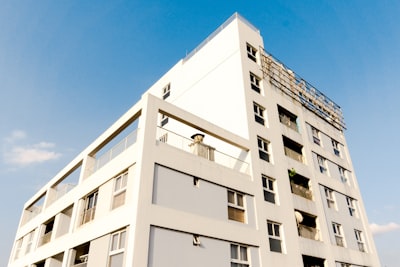
Commercial property insurance serves to compensate business for loss or damage to the physical property of the company, often including its contents. What most businessowners don’t realize, however, is that there are a few common exclusions on their insurance policy. Commercial property insurance doesn’t cover everything, and many policyholders are blindsided when an insurance claim is denied for an incident they originally believed was covered.
Incidents Covered Under Commercial Property
Commercial property policies are typically listed-perils policies, which means incidents listed on the policy will be covered while any dangers not listed on the policy will not be covered. Common inclusions on commercial property policies are:
- Fire
- Smoke
- Lightning
- Wind
- Hail
- Theft and vandalism
- Explosions
- Civil unrest
- Vehicle or aircraft collision
Excluded Incidents
Incidents, or perils, that are frequently excluded from commercial property insurance are floods and earthquakes. Depending on where you are, these coverages may be mandatory, but they usually don’t come with a basic property insurance policy. You can purchase both as separate policies in order to receive compensation for property lost or damaged due to floods or earthquakes.
This insurance also excludes employee dishonesty and theft. For protection from acts of embezzlement and other thefts from the company by partners or employees, businesses need Employee Dishonesty coverage, or crime insurance.
Items Excluded Under Commercial Property
Most property and items within owned by the business should be covered under a commercial property insurance policy. This includes the main building, such as a store or warehouse, as well as:
- Computers
- Furniture
- Equipment
- Fences
- Landscaping
- Inventory
- Company documents
Cash and other types of money may not be covered under commercial property insurance. There may also be limited coverage on items such as jewelry, furs and art. It also does not cover electronically stored data.
If you have equipment or property that is being leased or borrowed from someone else, make sure your policy covers these items in case of an accident. Businesses that grow or sell produce may also want crop coverage or spoilage coverage. Certain industries may also have livestock, which are not typically covered under basic property insurance but require livestock insurance instead.
There are several different coverages to add, especially when combining property insurance and general liability insurance into a business owners policy. A business owners policy (BOP) allows business owners to combine important coverages into one comprehensive and more affordable policy.
Is Commercial Property Insurance Expensive?
Costs for commercial property insurance vary depending on several factors. First, it’s important to know if you have an actual cash value policy or a replacement cost value policy.
An actual cash value policy provides compensation for lost or damaged items while accounting for depreciation. In other words, as the value of your business’ belongings goes down, so does the amount of compensation the business will receive after filing a claim. A replacement cost value policy doesn’t account for depreciation, and replaces items of similar or identical make and value. Actual cash value policies are generally cheaper, but replacement cost value policies are more likely to completely replace lost or damaged property.
Other factors that affect the cost of commercial property insurance include:
- Location
- Claims history
- Credit score
- Value of property and items insured
- Coverage limits
On average, businessowners pay $1,000 to $3,000 a year for $1 million worth of commercial property coverage. There are ways businessowners can save money on commercial property insurance, however. Companies with high credit scores and a low rate of claims typically pay less for coverage, as do smaller businesses with less property.